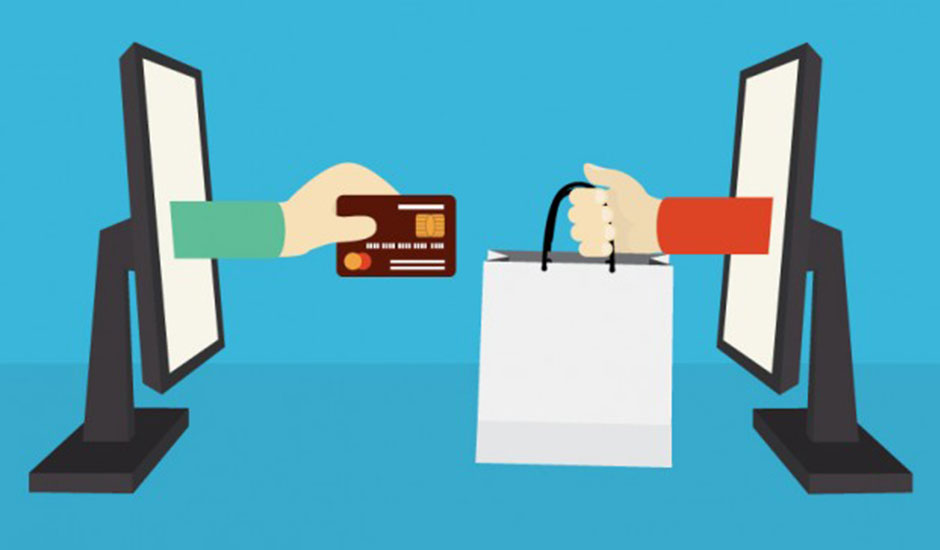Companies are hopeful and expecting strong sales growth in 2021.
New Delhi: The coronavirus pandemic has changed people’s lives in every possible way. The pandemic is driving a significant share of the current e-commerce transactions through digital payments, preparing consumers for a permanent shift. As per industry experts, there will be consistency in the rise in e-commerce and digital payments. Due to this coronavirus, more people are embracing digital payments and according to experts, this trend is set to continue and grow. It is noteworthy that India’s online retail recovered quickly after the nationwide lockdown and also witnessed a successful festive sales period ever.
The sector saw big upsides from new online shoppers, existing shoppers buying more food and grocery, and mature shoppers moving more of their spending to online platforms. However, companies are hopeful and expecting strong sales growth in 2021. Online grocery, e-pharmacy, and social commerce are the segments that are expected to see a bulk of the action in 2021.
Kazim Rizvi, Founding Director, The Dialogue told The Sunday Guardian: “E-commerce platforms have realized that they have to shelf all kinds of products on their platforms to serve the needs of the people. The surge in demand and the preference to buy from the online platforms meant that people will not only be looking for branded products, but also what they expect from local shops or Make in India products. To do so, e-commerce companies have to ensure that sellers are available on their platforms who can cater to such needs. At the same time, the companies will also have to cater to the people who have the buying capacity and expect branded products.”
Despite the economic impact of the Covid-19 pandemic, several Indian start-ups, including Unacademy and Nykaa, crossed the $1 billion mark in valuation and entered into unicorn tag. Vaibhav Lall, Founder, Khojdeal, told The Sunday Guardian: “During the initials days of the nationwide lockdown imposed by the Central Government, e-commerce companies had a tough time ensuring timely deliveries. This had a negative impact on customer loyalty too. Consumers have embraced online ordering for goods, services, and food during the Covid-19 pandemic, and many are unlikely to revert to their old ways. Many late adopters are also discovering the benefits of the online experience for home delivery or in-store pickup options, and may not look back. Over the last 5 years, the Indian e-Commerce industry has witnessed has an upsurge and there is significant headroom for future growth too. This growth will be spurred by an increase in internet usage, smartphone penetration & the pandemic, and will propel the Gross Merchandise Value (GMV) of the Indian e-commerce industry to grow to $100-120 billion at a CAGR of 30%.”
Several industry experts claim this pandemic to be a “blessing” as it bought a lot of positive impact on the e-commerce sector. “Though the initial few weeks of the lockdown were testing for e-commerce players, they were eventually able to emerge as winners. The pandemic brought a lot of positive impact on the e-commerce sector. Many e-commerce players have started assessing consumer preferences and have started aligning product categories and offer accordingly. In the long-term, being highly responsive towards consumer trends will be critical. Organizations have also started adapting their supply chain to ensure adequate supplies are on hand to meet demand along with a “buffer” stock of essential items. Approaches like drop-shipping are being explored for seamless delivery. Fulfilment and last-mile strategies are also being transformed. E-tailers are also working towards creating a frictionless digital experience for their customers with a focus on innovative and personalized customer engagement strategies,” Lall said.
Sandeep Malhotra, the Managing Director of IFFCO Kisan, said: “The essential services were marked by the erratic spell as a result of lockdown. Where mobility and supply chain witnessed irregularities, e-commerce emerged as an ideal solution providing delivery services without compromising social distancing practice. When everything came to a standstill, e-commerce/virtual shopping ensured continuity in the country’s economic operations. Enjoying comprehensive outreach e-commerce can generate demand and likewise contribute to the country’s revenue model. Incidentally, this creates the opportunity for distributors, manufacturers, and small sellers. Masses adopted online shopping mode with alacrity, even essential goods saw a fillip in purchase through e-commerce platforms. Customers enjoyed a personalized experience. It highly eliminated the hassle of visiting various shops, reducing the possibilities of contracting the disease.”

